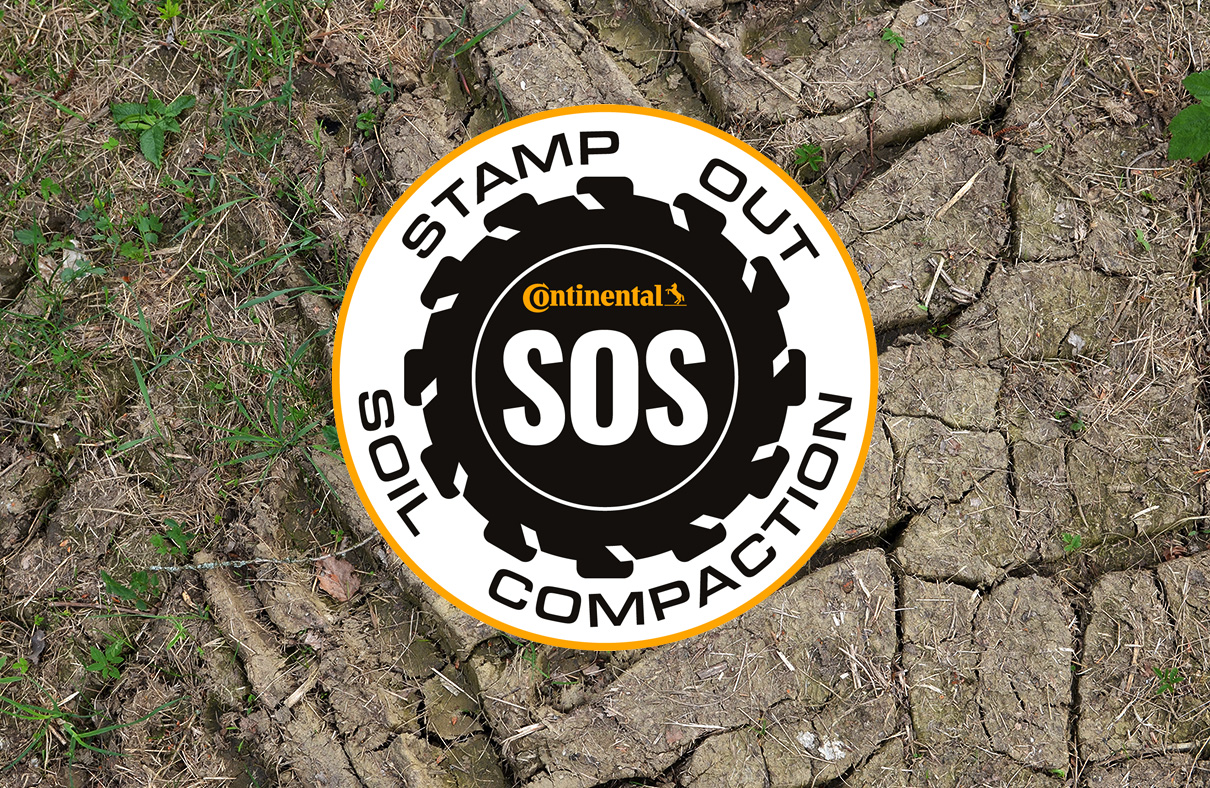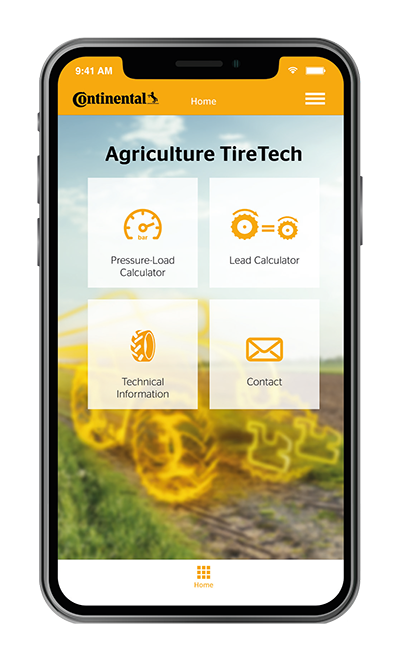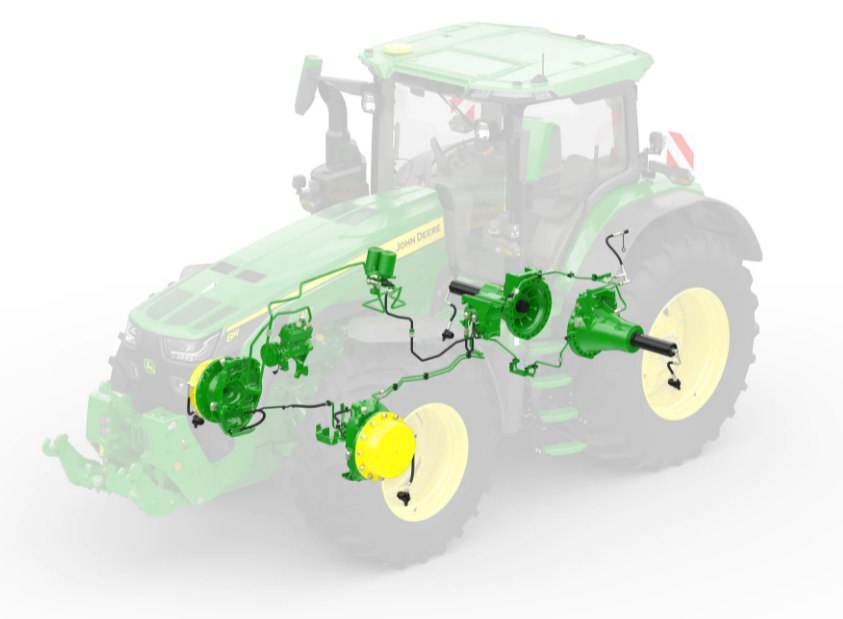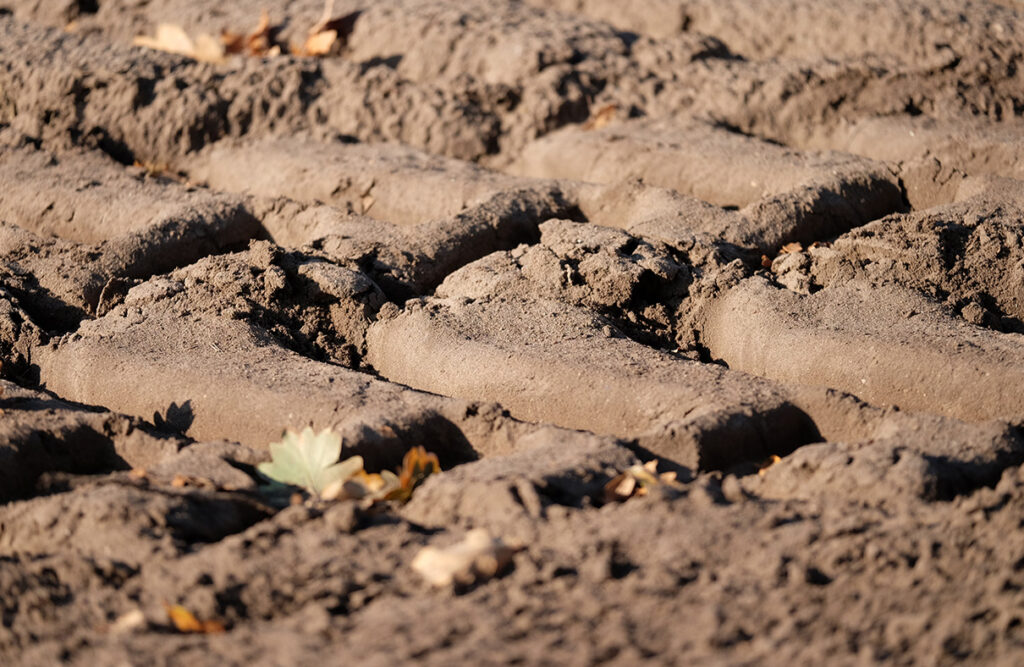Soil compaction is a major problem for farmers dependent upon heavy machinery and implements. It reduces the ability of soil to absorb water and cuts aeration, this makes it harder for plant roots to penetrate the soil, inhibiting growth as well as increasing standing water and long term erosion. If the weight of vehicles passing over arable land is not well distributed the problem is further exacerbated. Two firms addressing on-farm soil compaction are Continental and John Deere.
Working with ADAS soil scientist John Williams, tyre manufacturer Continental has highlighted that up to 30% of soils in the UK are severely degraded and that 39% of the cost attributed to compaction could be reduced by choosing the correct tyres and running machines at the optimum pressure for load.

Continental’s agricultural tyre specialist, Richard Hutchins suggests that increased axle weights, caused by heavy implements and more powerful machines, can be offset by tyres that can spread this weight. “Damage to topsoil is caused by incorrect tyre inflation, whilst compaction in subsoil is largely caused by increased axle loads. Calculating the correct pressure for load will minimise the impact farming has on both,” he explains.
Optimal road tyre pressures increase soil and field compaction
In a machinery test using a KUHN Optimer XL 5000 cultivator, Continental showed that reducing pressures by almost half the recommended road inflation reduced soil compaction and improved the operating efficiency of both the tractor and the cultivator.

On a stubble field, the rear tyres of a Fendt 720 were set to 9 psi and the front to 12 psi. “This is less than half what the tractor could operate with on the road, and it demonstrates the difference needed to operate at the right pressure for load when using large implements,” Hutchins says.
In contrast, the same tractor was also run at 21 psi in both the front and rear tyres. “The tyre slip increased dramatically when the pressures were increased, rising from below 10% to above 40%. The tractor was visibly struggling for grip and was leaving skid marks in the soil. A greater percentage of the overall weight was being applied to a smaller surface area which severely compacted the soil,” adds Hutchins.
As part of its new ‘stamp out soil compaction‘ campaign, Continental has launched an app that calculates the correct pressure for load based on the type of tyre and the weight of the vehicle, including any implement being used by a farm vehicle. The TireTech app is available for both iOS and Android devices.
On-the-go tyre pressure adjustments at the touch of a button
The need to adjust farm vehicle tyre pressures to match terrain and use has not gone unnoticed by farm machinery maker John Deere. This year the firm launched its new central tyre inflation system (CTIS) which allows a tractor driver to continually monitor and adjust tyre pressure with the push of a button. The solution is available with John Deere’s 8 Series tractors.
“Using CTIS, operators can monitor and adjust tire pressure as quick as 2 PSI/min, from the cab, push-button easy,” Ryan Jardon, tactical marketing manager for John Deere said. “CTIS makes it easy to adjust and optimize inflation pressures regardless of the task.”
Tyres can be deflated for field work to increase their footprint by nearly 25 per cent, with a reduction of up to 3psi in ground pressure, giving two to four per cent less wheel slip. This also helps to increase field speed while reducing soil compaction and smearing. Back on the road, a simple button press reinflates the tyres to optimum pressure for travelling and transport operations.




